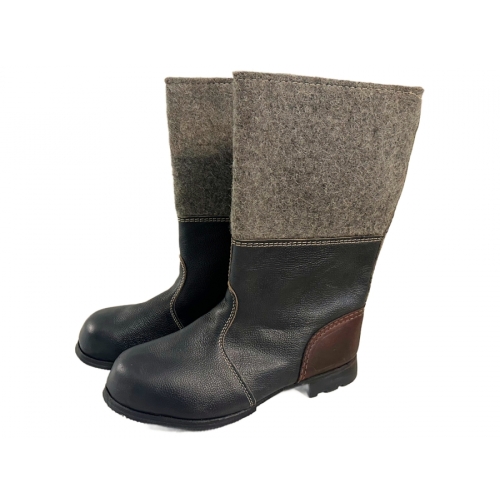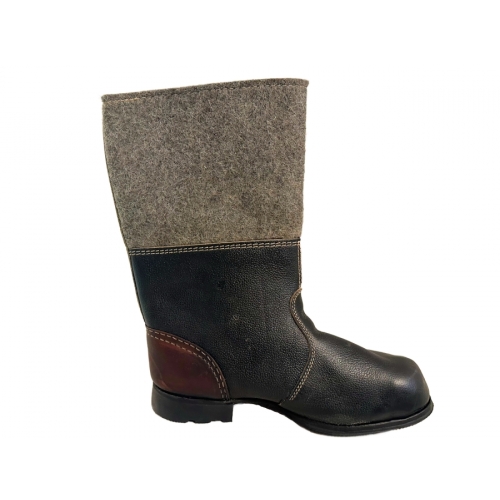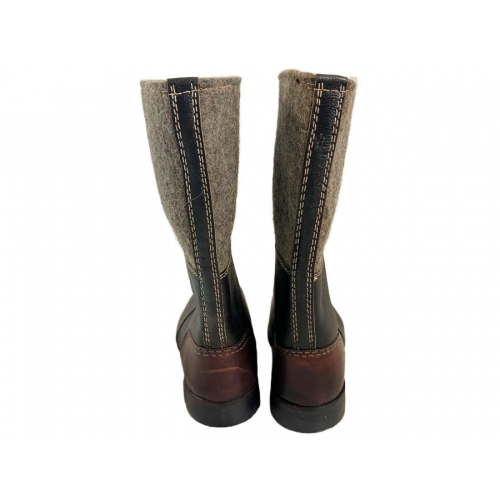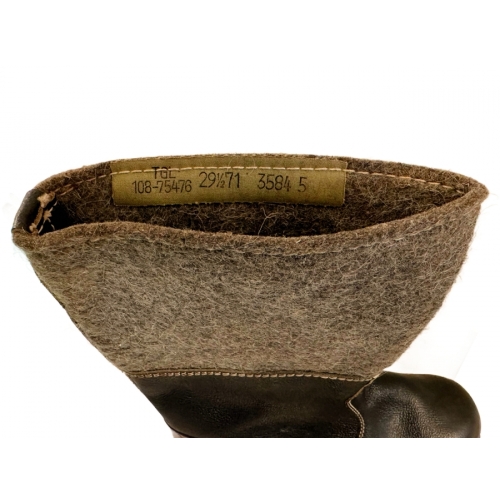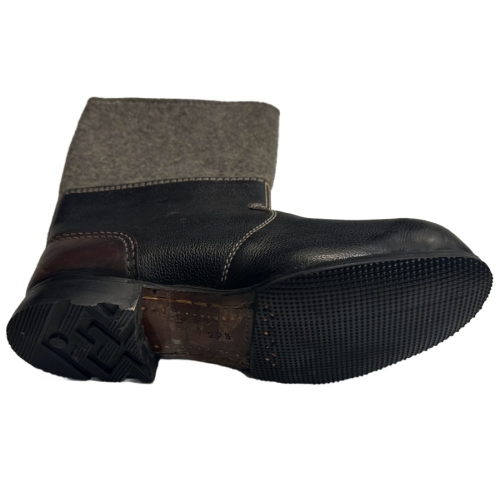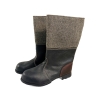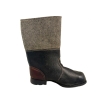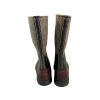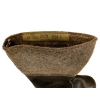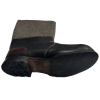WWII German M39 Winter Marching Combat Boots
SKU: WWII GERMAN M39 MARCHING WINTER COMBAT BOOTS
Original/Reproduction: Reproduction
Availability: In-stock
Manufacturer:
Date Manufactured: Model:
Size / Dimensions: 29 1/2 US: Size 10
Materials / Construction: Leather, Wool, Felt lining
Condition: New
Price: $375.00
Seller Type: WW2C
Seller ID: JMW
Return Policy: 3-day inspection and return policy on used guns and accessories.
Description
High Quality Reproduction WW2 German M39 Winter Marching Combat Jackboots. Size 10
History
The German M39 Winter Marching Combat Jackboots, also known as "M39 Winterboots" or "Wintermarschstiefel," were a type of footwear used by the German military during World War II, particularly in cold and snowy conditions. These boots were designed to provide better insulation and protection against the harsh winter weather on the Eastern Front and other cold-weather theaters of the war.
Key features of the M39 Winter Marching Combat Jackboots included:
-
Felt Lining: One of the distinctive features of these boots was the felt lining inside, which provided insulation to keep the wearer's feet warm in freezing temperatures.
-
Higher Leg: These boots typically had a higher leg design compared to standard combat boots, providing more coverage and warmth to the lower leg.
-
Lace-up Closure: They were often equipped with a lace-up closure system, which allowed for a snug fit and better protection against the cold.
-
Leather Construction: The upper part of the boots was made from leather, which is durable and provided some water resistance.
-
Hobnails: Some versions of the boots had hobnails on the soles for better traction in snowy or icy conditions.
-
Variations: There were different variations of the M39 Winter Marching Combat Jackboots produced during the war, and the design might have varied slightly depending on the manufacturer and the year of production.
These boots were not exclusive to any particular branch of the German military and were used by soldiers across various units, especially during the winter months when the weather was particularly harsh. They were part of the overall effort to ensure that German soldiers could continue to operate effectively in extreme weather conditions.
